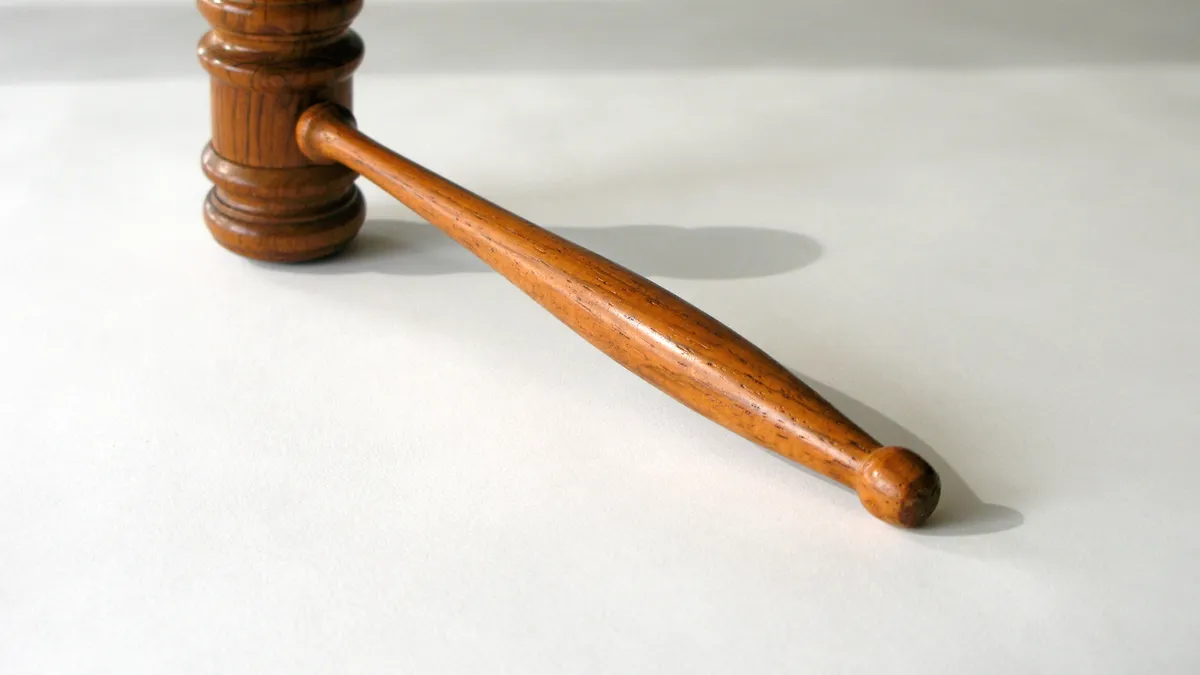Dive Brief:
-
The U.S. Department of Education's rule governing how colleges must investigate and potentially punish campus sexual misconduct still stands after a federal court hearing Friday.
-
A federal judge did not decide on a preliminary injunction blocking the rule that was requested by at least 18 democratic attorneys general. Instead, he asked for more information about whether states that potentially ignore the rule would be considered in violation of Title IX, the federal sex discrimination law.
-
The rule is slated to take effect next month. The state officials argue that because colleges have less responsibility to investigate incidents, it would fail to protect students from sexual harassment.
Dive Insight:
Education Secretary Betsy DeVos issued the rule concerning Title IX, the 1972 law barring campus sexual discrimination, in May amid stiff blowback from much of the sector.
Campus officials and sexual assault prevention advocates have derided it as weakening key protections for survivors, after the Obama administration thrust the issue into the spotlight nearly a decade ago. The 2011 guidance on Title IX was credited with helping to hold colleges more accountable in enforcing sexual misconduct policies.
However, civil liberties groups and men's rights activists have said that under the threat of having their federal funding yanked, colleges had unfairly come down on accused students, even if they were ultimately not responsible for sexual violence. The new rule intends to correct this alleged imbalance, DeVos has said.
It was challenged in court almost immediately. Survivor advocacy organizations such as Know Your IX, in conjunction with the American Civil Liberties Union, sued just over a week after the rule dropped. The attorneys general followed suit in early June. Meanwhile, more than a dozen Republican attorneys general signed on to a brief this month supporting the rule.
Friday's hearing was the first time a judge heard arguments from state officials and attorneys representing the Education Department.
U.S. District Court Judge Carl Nichols questioned why the department wasn't willing to give colleges more time to adjust to the rule, The Detroit Free Press reported. A transcript of the hearing was not available online. Institution officials have balked at the timeline the department gave to implement the rule, when other, similarly complex regulations have taken effect a year after they were introduced.
According to the publication, lawyers representing the department said Title IX obligations aren't suspended during the pandemic and that colleges knew the rule was coming, echoing the agency's previous talking points.
The regulation newly requires colleges to hold a live hearing to suss out the facts of an episode of sexual violence. Both parties, the accused and the accuser, must be allowed to directly question the other side through a surrogate.
It also narrows the definition of sexual harassment from the Obama administration's to that used by the Supreme Court, limiting it to conduct that is "so severe, pervasive and objectively offensive" that it hinders a student's education.
Colleges would also have to investigate fewer incidents that occurred off-campus, and they only need to look into those that were reported through the proper channels.
Nichols has asked the states and the department to put together memos that outline whether the department can consider states' refusal to comply with the regulation a Title IX violation. The filing is due July 29 for the attorneys general and Aug. 3 for the department.
An injunction against the rule likely won't materialize until after the department files its memo, said Jake Sapp, Austin College's deputy Title IX coordinator and compliance officer who tracks legal matters concerning the sex discrimination law.
That means colleges may not know whether the injunction will be granted until two weeks before the rule is scheduled to take effect on Aug. 14, Sapp said











